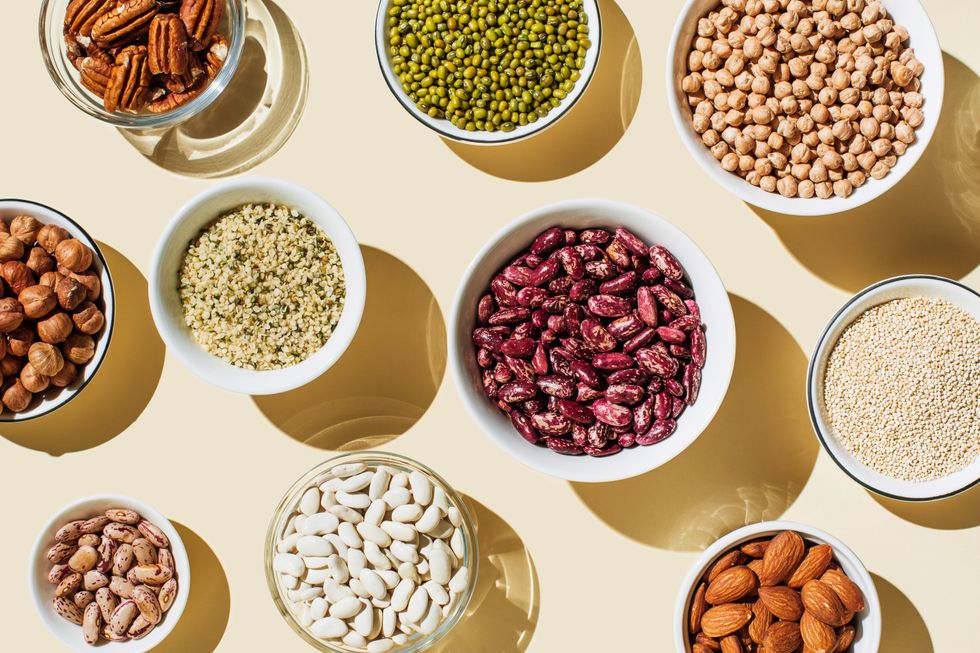A doctor shared menopause skin care advice
GETTY
Eating more protein during perimenopause can be key for improving your skin
Don't Miss
Most Read
Trending on GB News
Around menopause, the skin becomes worse at retaining moisture which means it can appear dry and thin, and wrinkles may be more obvious.
A doctor explained how to reduce the signs of ageing, including the food group you should consume for younger-looking skin.
Dr Aarthi Sinha from Church Crescent Aesthetics suggested a holistic approach is key for healthy skin during menopause.
This includes regular exercise, a good sleep routine and making sure your nutrition is in check. In particular, women should prioritise protein.
 Protein can be found in seeds, nuts and legumes GETTY
Protein can be found in seeds, nuts and legumes GETTYDr Sinha said: "Nutrition is key for peri- and post-menopausal women. Generally, women need to have enough protein to help with the regeneration of skin proteins (such as collagen) and for their general wellbeing, and enough micro-nutrients such as iron, b12 and zinc."
Protein is found naturally in foods such as meat, fish, nuts, seeds, grains and tofu. As estrogen declines during menopause, this leads to a drop in muscle mass and bone strength.
Because of this, many studies suggest women should eat more protein during perimenopause. Exercise can also help improve the appearance of the skin, the doctor said.
She continued: "Exercise increases blood flow to the skin, promoting regeneration of natural skin factors along with collagen, elastin and hyaluronic acid – whilst increasing your bone density at the same time."
Getting up and moving every day - even for a gentle walk or stretching - can help increase blood flow.
Sleep is another thing women should prioritise at this time in their lives as this gives the skin time to repair. Dr Sinha added: “A regular sleep routine is important for regulated healthy cortisol production which influences all the hormones in your body, including those that affect your skin."
This comes as the expert warned against too much sun exposure and drinking too much alcohol as this can be problematic for the skin.
She stated: “There is often an accumulation of skin damage accrued over the years, due to sun exposure, not enough use of sunscreen and excessive alcohol consumption.
"These factors can exacerbate menopausal skin changes. Declining oestrogen is a key factor for marked skin changes during the menopause.
LATEST DEVELOPMENTS

Getting enough sleep is important for the skin's appearance
GETTY
"This is because oestrogen is necessary for the production of collagen and hyaluronic acid in the skin.
“Collagen is a protein that gives skin its firmness and tightness, so declining collagen levels leads to the formation of fine lines, wrinkles and laxity of the skin on the face and body.
"Hyaluronic acid is a substance in the skin that is responsible for hydration - each hyaluronic acid molecule can retain up to 1,000 times its weight in water. Declining hyaluronic acid levels cause dry, itchy and scaly skin that can make it appear dull and cause tightness and discomfort.
“As we age, there is also a general shrinking of the bones of the face and the fat pads drop as they are no longer held firmly in place. This can appear as flattening of the cheeks, hollowing of the mid-face and sagging of the chin and jowl area. These changes can be exacerbated during the peri- and post-menopause phase due to the lack of oestrogen.”








